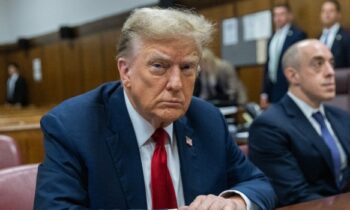The January 3rd piece had been about the outcomes of the several interventions of the administration in health, water, education, and safety nets, among others. A lot has happened since then: for instance, malaria prevalence is now 20% in Kwara, three points below the national average of 23% and seven points better than our ranking in 2019.
But the most enduring feature of the last three years is the inclusive growth Otoge has brought to Kwara — in governance and in politics. In the 2023 ballot, political parties in Kwara will field the highest number of female candidates in its recent history. It is the direct consequences of the efforts of the Governor to encourage inclusion.
It is more pervasive in governance. If you had co-morbidity and came down with a renal disease, the odds in Kwara’s General Hospital were that you would be referred elsewhere for your dialysis. The hospital feared that your dialysis could contaminate the two machines there. Complications arising from delays and stress had led to deaths. That is no longer so. The hospital now has two additional new, ultra-modern machines, thanks to this administration, which enable medics to treat different patients with varying histories without the fear of such contamination anymore. People needed to go elsewhere to fix their failing eyesights because Kwara had no facilities to attend to them. That is no longer so. The new eye centre is now equipped with machines that may be found only in the national eye centre in Kaduna. And so it is in dental care.
In a space of three years, AbdulRazaq has given bookmakers enough initiatives, legislations, projects and impactful programmes to document for history: KwaraLEARN, massive school renewal projects, Education Trust Fund Law; the setting up of Bureau of Micro, Small and Medium Scale Enterprises (MSME) to energise small businesses; five-year agricultural transformation plan, preceded by injection of 15 new tractors and two bulldozers, BETA Yield and FADAMA programmes that support thousands of farmers; Kwara State Sustainable Development Plan 2021-2030, the third since Kwara was created; Ilorin (Capital City) Master Plan, the second since 1976, a project meant to decongest and strategically expand Ilorin for sustainable habitation; Nigeria’s trailblazing Kwara State Gender Composition Law which commits 35% of all appointive offices to either of the genders; the Kwara State Investment Promotion Agency Law; the Executive Order on the Ease of Doing Business and other confidence-building measures such as granting the long-awaited Certificate of Occupancy to the conglomerate BUA and near-zero right of way for telecom firms; and the Kwara State Social Investment Programmes under which at least 104,000 poor people have benefited directly; among others.
AbdulRazaq is progressively exploiting Kwara’s strategic location in Nigeria to commit another ‘Seward’s folly’ — a term coined after one-time US Secretary of State William Seward who had signed the deal that bought Alaska from Russia in 1867 at $7.2m. The media branded the deal a waste until 1869 when major gold deposits were found in Alaska, followed a few years later by a very huge reserve of oil find. In a bid to build an economy around tourism, hospitality, entertainment, and technology, the Governor is building a massive international conference centre with a four-star hotel and a Dolby studio-fitted Visual Arts Centre that will be one of the three of such in West Africa. Both of these facilities will place Kwara on the continental map for good reasons. A few metres away from the visual arts centre stands the imposing innovation hub, itself sitting next to Kwara Hotel, which is being prepped for substantial investments and upgrade. The quartet, straddling government ministries and departments, is certain to turn the Ahmadu Bello Way to a sprawling business district with reverberating effects for economic growth and job creation.
Add those to the newly completed intensive care unit, new eye and dental facilities, the investments in sports facilities like Nigeria’s first eight-winged squash court, fixing of the Olympic-size swimming pool and the indoor sports hall, relaunch of the Kwara United Football Club, and the soon-to-be built cancer centre and the Kwara capital is ready for the world.
He is completing the two campuses of Kwara State University in Osi (Kwara South) and Ilesha Baruba (Kwara North) to open up the state, a vision supported by dozens of ongoing road projects that bring farmlands closer to city centres, as well as other social amenities that reduce rural-urban migration and make life more worth living. There are at least 34 ongoing road projects across the state, including giant ones like the Kishi-Kaiama road, Ilesha-Gwanara Road, Osi-Obbo Road, Ile-Ire District Road, Yebumot-Al-Hikmah-Adeta-Oloje Road, and General Tunde Idiagbon Flyover. Over 100 other roads, including interlocked ones, have been completed, while the Gbugbu International Market is near completion with its great offerings.
Under him, Kwara has secured one of the six AfDB-funded agroprocessing zones in Nigeria valued at $59m. Combined with the multimillion naira garment factory, tens of thousands of direct and indirect jobs will be created statewide. The last three years have seen a spike in business activities in the state, notwithstanding the covid-19 outbreak and its effects on the global economy. Kwara was one of the eight Nigerian states, including FCT, that attracted foreign direct investments in 2021. All of these are due in part to improved political climate which supports businesses, tolerates dissents, improves public service delivery, and discourages undue political interference.
The progress of the last three years speak for itself — in governance and in politics. While the administration does not lay claim to being perfect, as it is wont to admit, it is no doubt proud of its achievements and how far it has taken Kwara in the years since Otoge. The gains are as far-reaching and clear to the fair-minded as the rebranded Kwara Television, and are unique in their delivery to every corner of the state.
Rafiu Ajakaye, the Chief Press Secretary to Kwara State Governor Abdulrahman Abdulrazaq writes;




